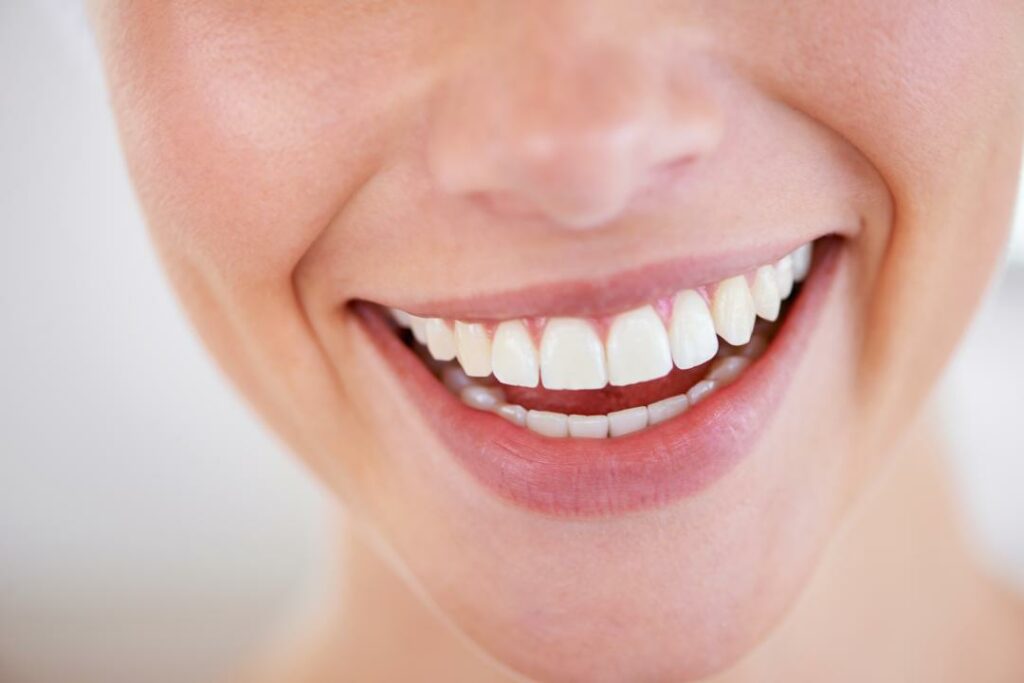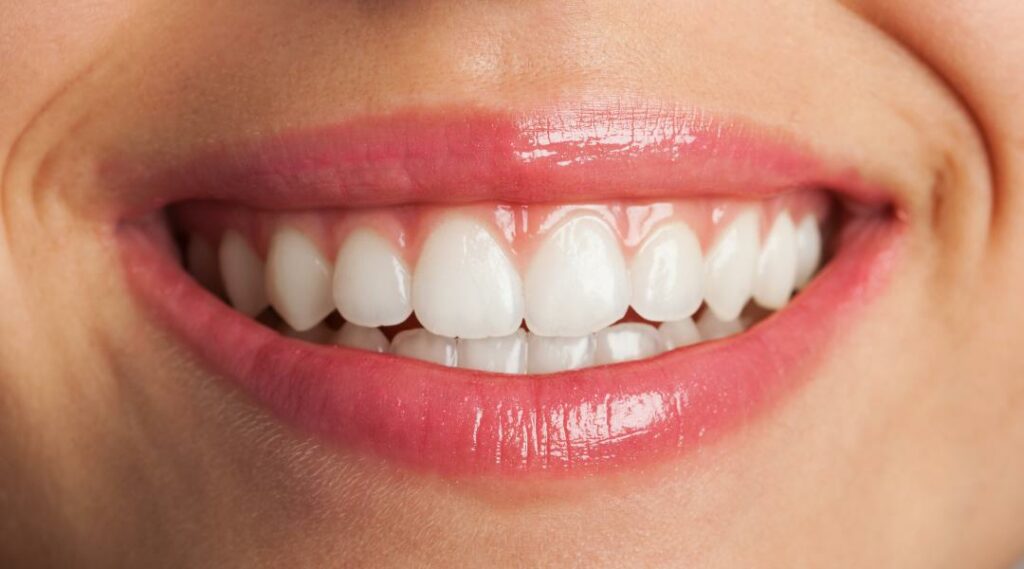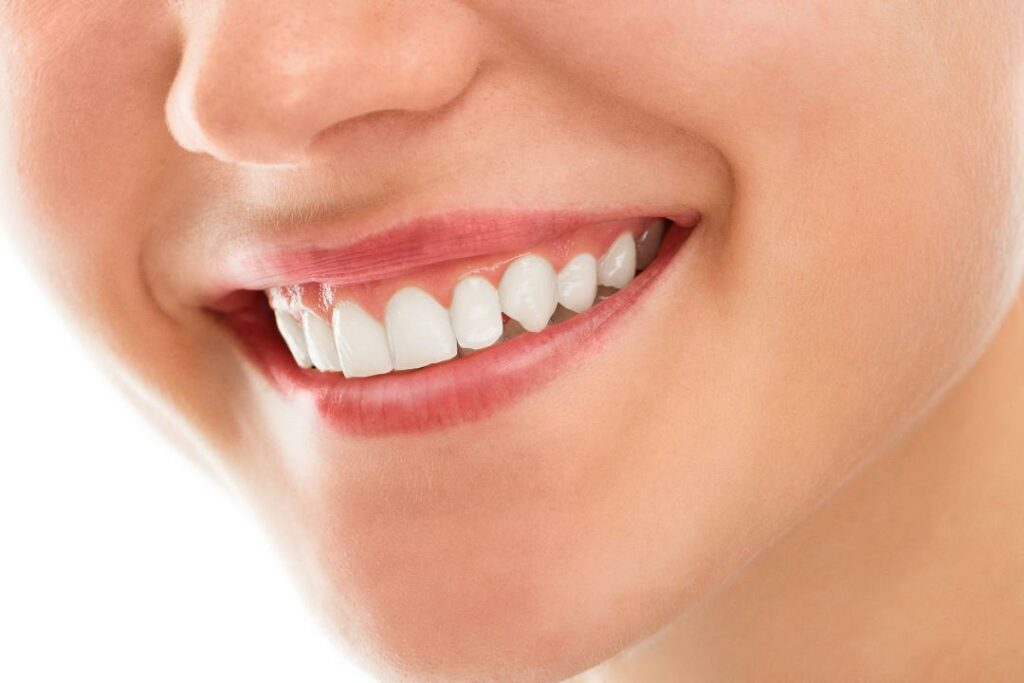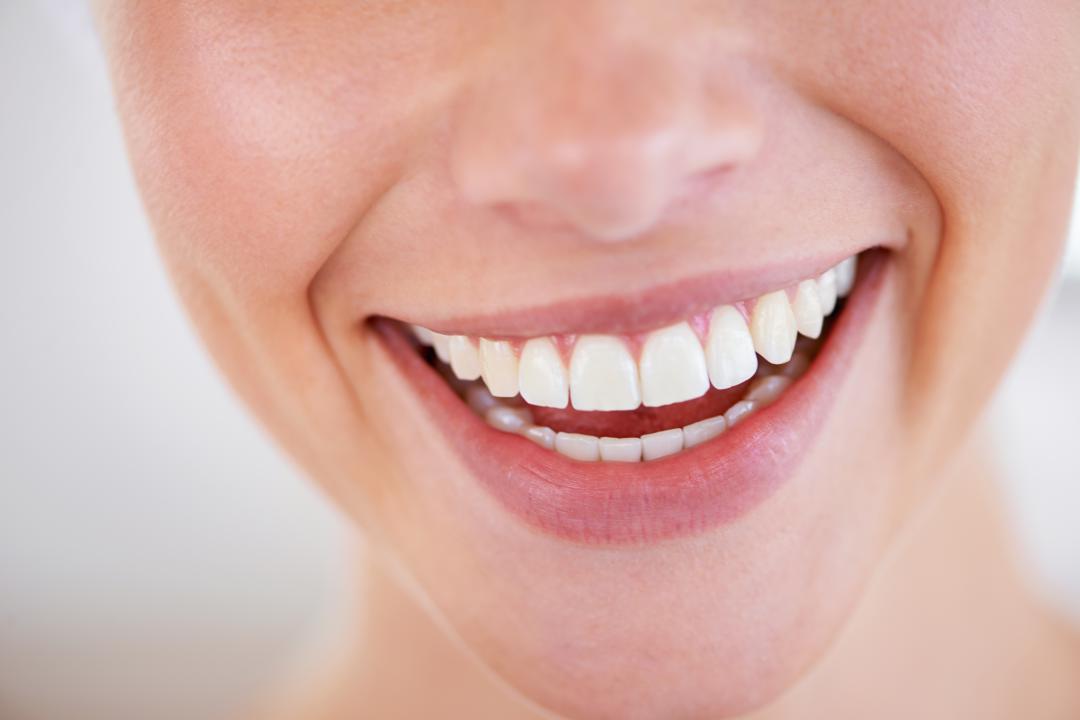Table of Contents

Discover effective ways to alleviate tooth sensitivity after tooth whitening and improve your oral health. Explore health tourism options with Synergy Health Travel in Turkey.
Introduction
Tooth sensitivity is a common condition that affects millions of people around the world. A strong, frequently painful sensation in the teeth, especially in response to hot, cold, sweet, or acidic meals and beverages, is what distinguishes it from other dental conditions. Tooth sensitivity is often caused by a loss of enamel or gum recession, which can expose the underlying dentin and nerve endings in the teeth.
For the purpose of preventing tooth sensitivity and other dental issues, maintaining good oral health is crucial. To do this, use fluoridated toothpaste, brush and floss frequently, and visit the dentist for regular checkups and cleanings.
Teeth whitening is a popular cosmetic procedure that can help improve the appearance of stained or discoloured teeth. However, it can also cause tooth sensitivity in some people. In this article, we will explore the causes of tooth sensitivity after teeth whitening and provide tips on how to alleviate the discomfort. We will also go over how crucial it is to keep your mouth healthy, as well as the advantages of teeth whitening and other dental procedures for your general dental health.
Why does tooth whitening cause sensitivity?
Due to the chemical method used during the surgery, teeth whitening can make some people more sensitive. The dentin layer, which contains microscopic tubules that lead to the nerve endings in the teeth, is where whitening agents enter after penetrating the enamel layer of the teeth. The nerve endings can get irritated by the chemicals in whitening products, leading to either short-term or long-term sensitivity.
The strength of the whitening agent, the length of the procedure, and the person’s general oral health are some of the variables that can affect sensitivity following teeth whitening. Individuals who already have decayed or damaged teeth, receding gums, or thin or weak enamel may be more sensitive following teeth whitening.
Tooth enamel may also be affected by whitening products. Certain products have the potential to weaken or erode the enamel, leaving teeth more vulnerable to sensitivity and other dental issues. To reduce the danger of enamel damage and sensitivity, it is crucial to use whitening solutions as instructed and under a dentist’s supervision.

How Do I Stop Tooth Sensitivity After Whitening?
Following teeth whitening, there are a number of things you can do to reduce sensitivity and stop additional irritability.
Avoiding Triggers
Tooth sensitivity can be triggered by a variety of factors, including hot or cold foods and beverages, acidic foods, sugary or sticky foods, and even cold air. Here are some tips for avoiding these triggers:
- Avoid hot or cold drinks. Having sensitive teeth might make drinking hot or cold liquids uncomfortable. Try drinking liquids at room temperature to prevent this, or use a straw to reduce contact with your teeth.
- Avoid acidic foods: citrus fruits, tomatoes, and vinegar are examples of foods that are acidic and can erode away tooth enamel, making your teeth more sensitive. Limiting your consumption of certain items may help, as may gargling with water after eating them.
- Limit sugary or sticky foods. Foods that are sweet and sticky can cause tooth decay, which can cause sensitivity. Try to limit the amount of sugary meals and beverages you consume and wash your teeth afterward.
- Maintain good oral hygiene: To prevent tooth sensitivity and other dental issues, practise good oral hygiene. Use fluoride toothpaste to brush your teeth twice a day, floss every day, and go to the dentist for regular checkups and cleanings.
By avoiding triggers that worsen sensitivity and maintaining good oral hygiene, you can reduce your risk of tooth sensitivity and improve your overall dental health.
Natural Remedies
If you’re looking for natural ways to alleviate tooth sensitivity, there are several home remedies and herbal remedies you can try:
Home remedies for sensitive teeth
- Saltwater rinse: Mix a teaspoon of salt in a cup of warm water and swish it around your mouth for a few seconds before spitting it out. This can help reduce inflammation and sensitivity.
- Baking soda paste: Mix baking soda and water to make a paste and apply it to your teeth for a few minutes before rinsing. This can help neutralise the acids in your mouth and reduce sensitivity.
- Oil pulling: Swishing a tablespoon of coconut oil in your mouth for 10–15 minutes can help reduce inflammation and sensitivity.
Herbal remedies for tooth sensitivity
- Clove oil: Apply a drop of clove oil to the affected tooth or gums for temporary relief of sensitivity.
- Aloe vera gel: Apply a small amount of aloe vera gel to your toothbrush and brush your teeth with it for a few minutes. This can help reduce sensitivity and promote healing.
How to use natural remedies safely
While natural remedies can be effective for reducing tooth sensitivity, it’s important to use them safely. Always follow the instructions carefully and avoid overusing them. Some natural remedies can be abrasive and damage your enamel if used too often or incorrectly. If you experience any adverse reactions, stop using the remedy immediately and consult your dentist.
Remember that natural remedies should not replace professional dental care. If you have persistent or severe tooth sensitivity, it’s important to see your dentist for a proper diagnosis and treatment.
Over-the-Counter Products
If natural remedies aren’t providing enough relief for your sensitive teeth, there are several over-the-counter (OTC) products you can try:
Types of OTC products for sensitive teeth
- Desensitizing toothpaste – This type of toothpaste contains compounds that block the sensation of pain in the nerves of your teeth.
- Fluoride mouthwash: Rinsing with fluoride mouthwash can help strengthen your tooth enamel and reduce sensitivity.
- Gel or varnish: These products are applied directly to your teeth and contain compounds that help reduce sensitivity.
How to choose the right product for your needs
Choosing the right OTC product for your needs can depend on several factors, including the severity of your sensitivity and your personal preferences. Desensitising toothpaste is often the first choice for many people, as it’s widely available and easy to use. However, if you’re looking for a more targeted approach, you may want to consider a gel or varnish that’s applied directly to your teeth.
When choosing an OTC product, be sure to read the label carefully and look for products that have been approved by the American Dental Association (ADA). Additionally, talk to your dentist for recommendations on which product may work best for your specific needs.
Instructions for use It’s important to follow the instructions carefully when using OTC products for sensitive teeth. Be sure to use the product as directed and don’t overuse it, as this can lead to other dental problems. For example, using desensitising toothpaste too often can cause your teeth to become desensitised permanently, which can make it difficult to detect other dental problems.
By using OTC products as directed and in combination with other treatments such as natural remedies and good oral hygiene, you can reduce your sensitivity and improve your overall dental health.
Professional Treatments
If your tooth sensitivity persists despite using natural remedies and OTC products, it may be time to consider professional treatment. Here are some of the most common types of professional treatments for tooth sensitivity:
Types of professional treatments for sensitive teeth
- Fluoride varnish: A fluoride varnish is a concentrated fluoride treatment that’s painted on your teeth to help strengthen your enamel and reduce sensitivity.
- Desensitising agents: Your dentist can apply a desensitising agent to your teeth, which can help block the sensation of pain in your nerves.
- Dental bonding: Dental bonding involves applying a tooth-coloured resin to your teeth to help protect the exposed dentin and reduce sensitivity.
- In-office whitening: If your sensitivity is related to teeth whitening, your dentist may be able to offer an in-office whitening treatment that’s less likely to cause sensitivity than at-home treatments.
Pros and cons of professional treatments
Professional treatments can be effective at reducing tooth sensitivity, but they also come with some potential drawbacks. For example, they can be more expensive than OTC products, and some treatments may require multiple appointments. Additionally, some treatments can cause discomfort or pain during the procedure.
However, professional treatments are typically performed by trained dental professionals, which can give you greater confidence in the safety and effectiveness of the treatment.
How to choose the right treatment
Choosing the right professional treatment for your tooth sensitivity depends on several factors, including the severity of your sensitivity and your budget. Your dentist can help you determine which treatment may be best for your specific needs.
It’s important to remember that professional treatments are often used in combination with other treatments, such as natural remedies and good oral hygiene. By working with your dentist to create a comprehensive treatment plan, you can reduce your sensitivity and improve your overall dental health.

Prevention
Preventing tooth sensitivity is an important part of maintaining good oral health. Here are some tips on how to prevent tooth sensitivity:
Importance of preventative measures
Preventing tooth sensitivity is often easier than treating it after it has already occurred. By taking preventative measures, you can reduce your risk of developing tooth sensitivity and other dental problems.
How to prevent tooth sensitivity
- Brush your teeth twice a day with a soft-bristled toothbrush.
- Floss daily to remove plaque and debris from between your teeth.
- Use fluoride toothpaste to help strengthen your enamel.
- Limit your intake of acidic foods and drinks, such as citrus fruits and soda.
- Wear a mouthguard at night if you grind your teeth.
- Don’t use tobacco products, which can damage your enamel and cause sensitivity.
Tips for maintaining good oral hygiene
In addition to preventing tooth sensitivity, maintaining good oral hygiene is important for your overall dental health. Here are some tips for maintaining good oral hygiene:
- Visit your dentist for regular checkups and cleanings.
- Eat a healthy diet that’s rich in vitamins and minerals.
- Drink plenty of water to help flush away bacteria and debris.
- Chew sugar-free gum after meals to help stimulate saliva production.
- Use a tongue scraper to remove bacteria from your tongue.
By following these preventative measures and maintaining good oral hygiene, you can reduce your risk of developing tooth sensitivity and other dental problems. If you do experience tooth sensitivity, it’s important to speak with your dentist to determine the underlying cause and develop an appropriate treatment plan.
Health Tourism Options
Health tourism, also known as medical tourism, is a growing industry that involves travelling to another country to receive medical treatment or dental care. One popular destination for health tourism is Turkey, which has become known for its high-quality and affordable dental care.
Benefits of travelling to Turkey for dental care
- High-quality dental care: Turkey has a reputation for providing high-quality dental care that meets international standards.
- Affordable prices: Dental care in Turkey is significantly less expensive than in many other countries, making it an attractive option for those seeking affordable dental care.
- Experienced dentists: Turkish dentists are highly trained and experienced, with many of them having received their education and training in Europe or the United States.
- Modern facilities: Dental clinics in Turkey are equipped with modern technology and facilities, ensuring that patients receive the best possible care.
Overview of Synergy Health Travel
Synergy Health Travel is an international health travel agency located in Izmir, Turkey. They specialise in helping patients from around the world access high-quality and affordable dental care in Turkey. Synergy Health Travel works with a network of experienced and reputable dental clinics throughout Turkey, ensuring that patients receive the best possible care. They also offer a range of services, including airport transfers, accommodation, and translation services, to make the process of travelling for dental care as smooth and stress-free as possible.
If you’re considering travelling for dental care, Turkey and Synergy Health Travel may be great options to consider. With high-quality care, affordable prices, and experienced dentists, Turkey has become a popular destination for those seeking dental care abroad.
Dental services in Turkey
Turkey has become a popular destination for dental tourism due to its high-quality and affordable dental care services. Here are some of the dental services available in Turkey:
- General dentistry: This includes routine dental check-ups, fillings, extractions, and cleaning.
- Cosmetic dentistry: Cosmetic dental procedures such as teeth whitening, veneers, and dental implants are available at many dental clinics in Turkey.
- Orthodontics: Dental clinics in Turkey offer orthodontic services such as braces, aligners, and retainers to help patients achieve straighter teeth and a better bite.
- Endodontics: Endodontic procedures such as root canal therapy are also available at many dental clinics in Turkey.
- Periodontics: Dental clinics in Turkey offer periodontal treatments for gum disease and other conditions affecting the gums.
The cost of dental care in Turkey is significantly lower compared to many other countries. For example, a dental implant procedure in Turkey costs around $1,200, while the same procedure in the US can cost over $4,000. This makes Turkey a popular destination for those seeking affordable dental care.
Dental clinics in Turkey are equipped with modern technology and facilities, and many of them employ dentists who have received their education and training in Europe or the United States. The clinics are also subject to regulations set by the Turkish Ministry of Health, ensuring that patients receive safe and high-quality care.
Travelling to Turkey for dental care
Travelling to Turkey for dental care can be a great option for those looking for high-quality and affordable dental treatments. Here are some tips to help you plan your dental trip to Turkey:
- Research dental clinics in Turkey to find one that offers the services you need. Look for clinics with positive reviews and testimonials from previous patients.
- Get in touch with the clinic: Contact the clinic and provide them with your dental history and treatment requirements. The clinic may ask for X-rays and other diagnostic tests to create a treatment plan.
- Plan your trip: Once you have confirmed your appointment with the clinic, plan your trip to Turkey. Book your flights and accommodations in advance to save money.
- Get a visa: Citizens of some countries require a visa to enter Turkey. Check the visa requirements and apply for a visa if necessary.
- Arrange transportation: Arrange transportation from the airport to your hotel and to the dental clinic.
- Follow post-treatment instructions: After your dental treatment, the clinic will provide you with post-treatment instructions. Follow them carefully to ensure a speedy recovery.
Here are some tips for travelling to Turkey:
- Learn some basic Turkish phrases to help you communicate with the locals.
- Dress appropriately: Turkey is a conservative country, so it’s important to dress modestly, especially in religious places.
- Try the local cuisine. Turkey is known for its delicious cuisine, so make sure to try some of the local dishes.
- Be mindful of cultural differences. Turkey has its own unique customs and traditions, so be respectful of them.
Synergy Health Travel is an international health travel agency located in Izmir, Turkey. They offer a range of dental treatments and can help you plan your dental trip to Turkey. Choosing Synergy Health Travel has many benefits, including:
- Personalised service: They provide personalised service to ensure that your dental trip to Turkey is hassle-free.
- Affordable prices: They offer affordable prices for dental treatments, which can save you a significant amount of money compared to treatments in other countries.
- Experienced team: Their team is experienced and knowledgeable in dental care, ensuring that you receive high-quality and safe treatment.
- Modern facilities: The clinics they work with are equipped with modern technology and facilities, providing you with a comfortable and safe environment for your dental treatment.
FAQs
- How long does tooth sensitivity last after whitening?
- Tooth sensitivity after whitening usually lasts for a few days up to a week, but it can vary from person to person.
- Is tooth sensitivity after whitening permanent?
- No, tooth sensitivity after whitening is usually temporary and should go away on its own within a week.
- Can I use desensitising toothpaste for tooth sensitivity after whitening?
- Yes, desensitising toothpaste can help alleviate tooth sensitivity after whitening. It works by blocking the nerve endings in your teeth.
- What is the average cost of dental care in Turkey?
- The cost of dental care in Turkey is significantly lower than in many other countries. The exact cost depends on the type of treatment you need.
- Is dental care in Turkey safe and reliable?
- Yes, dental care in Turkey is safe and reliable. Turkey has highly trained and experienced dental professionals who use modern equipment and techniques.
- Can I get a consultation before travelling to Turkey for dental care?
- Yes, most dental clinics in Turkey offer online consultations. This allows you to discuss your dental needs with a dentist before making any travel arrangements.
- How long do I need to stay in Turkey for dental treatment?
- The length of your stay in Turkey depends on the type of dental treatment you need. Some treatments can be completed in a single visit, while others may require multiple visits over a few days.
- Can Synergy Health Travel assist with travel arrangements to Turkey?
- Yes, Synergy Health Travel can assist with travel arrangements to Turkey, including flights, accommodations, and airport transfers.
- Do I need a visa to travel to Turkey for dental care?
- This depends on your country of origin. Some countries are exempt from a visa for a certain period, while others require a visa to enter Turkey. You can check the visa requirements on the Turkish government’s website.
- What payment methods are accepted for dental care in Turkey?
- Most dental clinics in Turkey accept credit cards and cash. Some clinics may also accept international bank transfers. It’s best to check with the clinic beforehand to ensure that you have the correct payment method.
Conclusion
In conclusion, tooth sensitivity following bleaching is a common issue that can be handled using a variety of techniques, such as avoiding triggers, using natural remedies, buying over-the-counter products, and getting professional help. However, prevention through good oral hygiene and routine dental exams is the best course of action. Health tourism can be an economical choice for dental care, and Turkey is a well-liked location with high-quality dental clinics and reasonable costs. In Zmir, Turkey, Synergy Health Travel is a seasoned health travel agency that can assist you with trip planning and guarantee a secure and enjoyable experience. Consider your options and act right away to achieve the smile you deserve despite tooth sensitivity.
Feel free to contact us 🙂
Follow us on Instagram : Synergy Global




